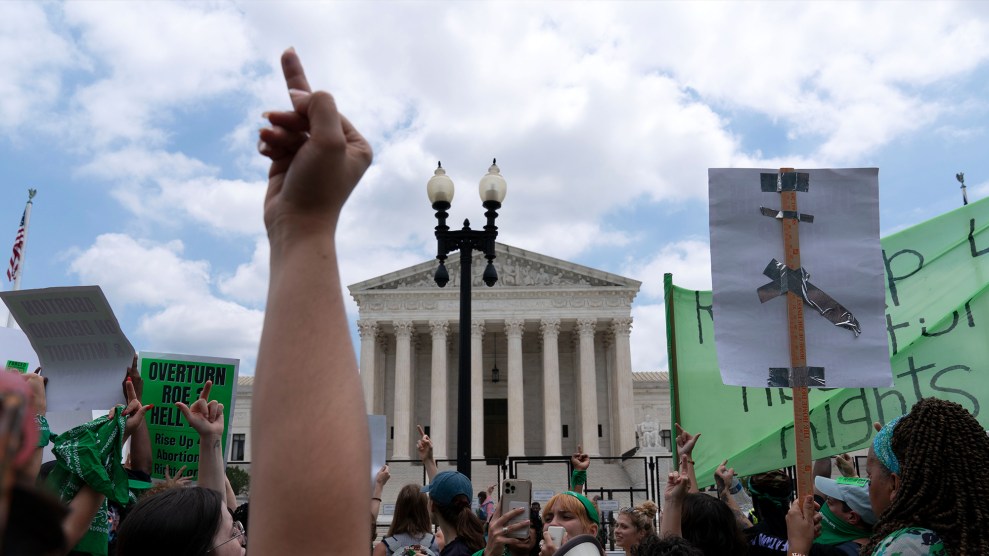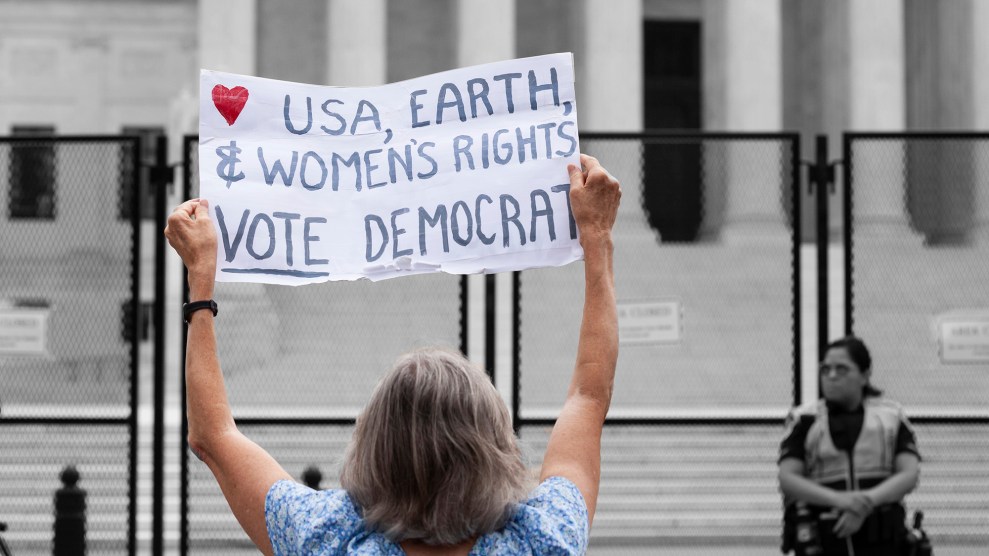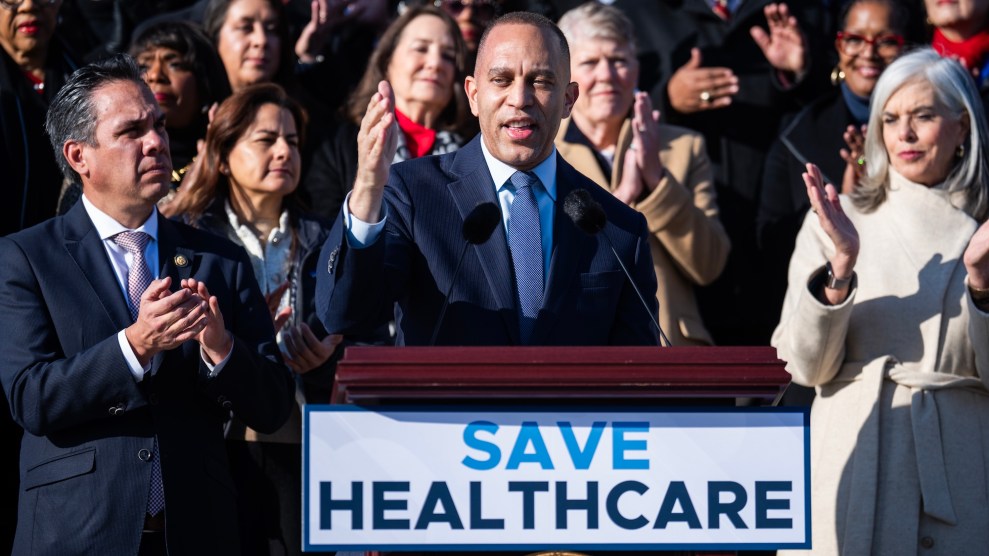
ZUMA
On Friday, with the fall of Roe official, a parade of companies emerged with similar announcements: we hear you, we see you, and we will fund your abortion travel and assistance. Dick’s Sporting Goods, Target, JP Morgan Chase, Disney, and others all introduced these policies either after the leak of the decision or in recent days.
At first blush, it could seem comforting. But as with many corporate acts of activism before it, a closer inspection gives way to the sinking feeling that something is deeply warped; that this pantomime of corporate responsibility has been spit out of a shiny branding machine and processed in a scrambled effort that neatly smooths over cracks of hypocrisy, complicated human resources questions, and the alarming consequences of turning to business while the government in power sits on its hands.
In the case of Starbucks—where a promise to cover abortion in health care plans and cover abortion travel expenses could not be promised to employees at unionized stores—it’s devolved into explicitly anti-union tactics. “What we can say for sure, is that Starbucks will always bargain in good faith,” Sara Kelly, acting executive vice president of Starbucks, explained.
Though I don’t doubt Kelly’s sincerity in mourning Roe, the certitude with which she promises Starbucks will bargain in good faith does not track with the company’s increasingly brazen, union-busting efforts.
Imagine the worker at a newly unionized location, who may one day be in a position to seek to terminate a pregnancy, receiving this news. Doesn’t it suddenly seem attractive, downright reasonable, to jump to a non-unionized Starbucks? Here, Starbucks’ refusal to guarantee abortion assistance to unionized workers boils down to an anti-union carrot stick intended to exert what the company wants most of all: control.
The potential exclusion of unionized workers misses a critical point in our post-Roe landscape: that society’s most vulnerable—those who benefit from labor protections offered by unions—will be most affected by the loss of Roe, and would thus benefit the most from any reimbursement plan. And if helping them does not fit a company’s other interests. Well, oh well.
None of this is to say that companies should decline to take action. Nor is it to dismiss the fact that some seeking abortions may truly benefit from employer-backed abortion assistance. But intense scrutiny must be paid when capitalist forces are stepping in where the state has failed, especially when we’re living through the backlash to progress in real-time; when the same streaming giants that celebrate gay pride allegedly retaliate against their trans workers; when Meta offers travel assistance for abortions while silencing internal discussion of the extremist ruling that prompted that very assistance; when companies that staunchly oppose classifying most of its workforce as “employees” will include abortion in healthcare plans; when so many of these corporate giants have had outsized roles in bankrolling state abortion bans around the country.
But the problems extend far beyond hypocrisy. Serious questions over what corporate-sponsored abortion support will look like in practice have also emerged, particularly in regards to employee privacy. After all, employer-backed abortion assistance will not be anonymous; funds and reimbursement will presumably be directed into an account attached to an identity. CEOs could promise privacy now, but what happens to abortion data when companies change hands? Will it be monetized? What’s missing in many of these corporate announcements is what steps are being taken in order to protect healthcare records from outside forces, whether that be the newly emboldened anti-abortion movement, everyday hackers, or law enforcement officials in states increasingly weaponizing digital trails in order to prosecute abortions and miscarriages. Now, zoom out once more and you’ll see that this entire ad-hoc system requires the worker to place a herculean level of trust in their bosses—the very people, who, no matter how benevolent, cannot be trusted, during an experience where many are often unable to trust their most intimate personal relations.
The impulse to get on the right side of history may be well-intentioned. Yet, capitalism subbing in for the constitutional right to an abortion smacks of opportunism; corporate America knows it will profit from fundamentally good social policy. After all, corporate knows that it feels good for a worker to believe that they work for the right type of company, one willing to stand up to at least some of the neverending supply of cruelty we’ve witnessed over the past few years. Companies might be breeding armies of asshole managers, but, hey, at least the narcissist on top did something after the fall of Roe.
For so many, Roe afforded women the same basic rights to personhood as men. But with corporate-funded abortions, pregnant people will be forced to surrender their autonomy to another person, their boss. That’s never going to be freedom.

















